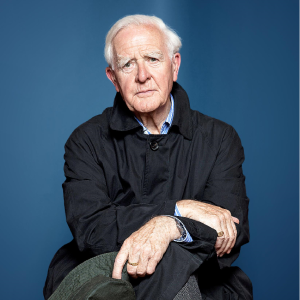There is juicy material such as Le Carré’s posthumous novel, Camilleri’s penultimate, a new Coe and a new Landero, and what will be another Isabel Allende bestseller.
In this 2022 several important literary anniversaries will be celebrated. One of them is the centenary of the publication of ‘Ulysses’, by James Joyce, one of the great novels of the 20th century, and immense applause for those who understand it (sometimes you have to dare with it). Another event will be the 140th anniversary of the birth of Virginia Woolf, which she does not stop rereading in this 21st century. And there will also be another round number of an author who wins readers every day: the 50th anniversary of the death of the poet Alejandra Pizarnik. This is to start.
But it is also a year that arrives well loaded with new titles, although perhaps with a little more tranquility than in the previous months when the pandemic jam of the books withheld in 2020 was suffered. However, there is juicy material such as the posthumous novel by Le Carré, the penultimate by Camilleri, a new Coe, and a new Landero, and what will be another ‘bestseller’ by Isabel Allende. There is an interesting look at love and friendship, as Carlos Zanón and Agustín Fernández-Mallo do in their new stories. Juana Salabert reflects on the terror caused by an Islamist attack and Cristina Fallarástells us that, in reality, Juana la Loca was not so crazy. And we will have a new novel by Nobel Pamuk that may be the great novel of the pandemic.
‘Project Silverview’ – John Le Carré (Planet)

Here is the posthumous novel by Le Carré —he died a little over a year ago— for all fans of spy novels and shadow government strategies. Because this is also a spy novel. That starts much more slowly, yes: a man leaves his job in the City of London and retires to run a bookstore. Obviously, the thing does not stop there, since he is soon visited by the one who is going to unleash the whole shebang: a Polish immigrant who lives in Silverview, the large mansion on the outskirts of town. From there the party begins. A letter arrives from a high-ranking spy in London warning him of a dangerous leak, and investigations take him to this sleepy town by the sea. The latest from the great Le Carré.
‘Mr. Wilder and I’ – Jonathan Coe (Anagram)
We already have a new Coe after ‘The Heart of England’. Its editorial says that it is “a nostalgic, sweet, cultured and charming, timeless novel.” Behind those adjectives hides the story of the soundtrack composer Calista Frangopoulou, who, at a time in her life that is not very good, remembers how she ended up being hired by Billy Wilder himself for one of her films. Coe has even dared to give voice to the film director, who even says at one point in the novel: “That’s what’s going on now. You haven’t made a serious film unless the viewers leave the theater feeling that they feel like committing suicide. (…) You have to give them something more, something a little more elegant, a little more beautiful”. And that he did not know what was going to come decades later.
‘Love song’ – Carlos Zanón (Salamandra)
After ‘Taxi’ and his vagaries with Carvalho, Zanón immerses himself in a novel that seems to be about music, but it isn’t. The music – the characters are musicians in their fifties who go on tour as if they were in 1985 – is just the excuse. What the writer is doing here on this slightly parodic tour of summer campsites is reflecting on creation, who the creators are, and the weight we give it in this country. The songs sound, some characters known to regulars appear in his great novels, and there is always a certain melancholy. And in the background there is also a deep reflection on friendship and how even, says the author, it can become more self-destructive than love.
‘The Age of Chalk’ – Álvaro Ceballos (Alfaguara)
Many of Álvaro Ceballos’s generation will know this story. At the end of the 2000s came the economic crisis and many who were entering their thirties at the time had to return to their parent’s house. Ceballos had to return to the house where he had been a teenager and came face to face with many memories. In a way, they are the ones he turns to in this novel in which he returns to 1991, to a private, male school “in which they talk about the Spain of the future, where the girls are light years away, the parents and the children they are unable to communicate, and growing up means stopping asking questions.” This novel, we are told, is the story of those who were called Jasp, who were promised everything that the boomers were going to have, and yet, they hardly had anything left.
‘Ulysses’ – James Joyce (Gutenberg Galaxy)
Obviously, it’s not a novelty, but it’s here because it’s been 100 years since its publication and it’s the first time it’s been published with illustrations by an artist. A book-gift: 134 color illustrations and almost 200 black and white by Eduardo Arroyo, which complement (and explain, which never hurts in this novel) the adventures of Leopold and Molly Bloom that famous June 16.
You may like to read The 7 best-selling audiobooks in Spanish





